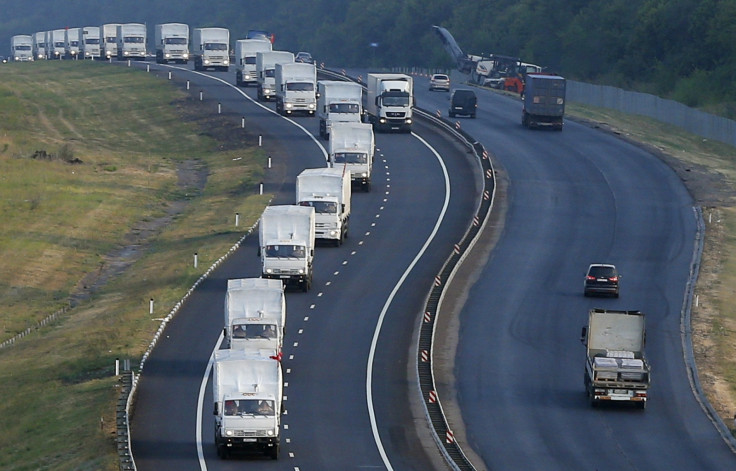Russian Sanctions Could Escalate as Putin Mulls Car Ban

Russia is considering banning the import of cars from the EU, US and other countries by which it has been sanctioned, according to local media reports.
Russian daily newspaper Vedomosti said today that the ban would come in should further embargoes be imposed on Russian goods. While the ban would not affect the operations of companies with production facilities inside Russia, which include many of the world's largest car manufacturers.
The ban could also be extended to cover aircraft, shipbuilding and other areas of the automotive sector, Vedomosti quotes an anonymous government official as saying. A list of potential industries to be sanctioned has "already been sent to Vladimir Putin", Russia's president.
As the situation in Eastern Ukraine becomes ever more perilous, the tit-for-tat sanctioning continues to gather pace.
Some western employees based in Moscow have been having their visas torn up and are being forced to leave the country, IBTimes UK understands. A British lawyer employed by a legal firm in Russia was refused re-entry to the country, with officials citing parking offenses and "erroneous entries" to a visa application form. The employee had been working in Russia for a number of years.
The news comes as actors on both sides are scrambling to find ways of negating the effect of the sanctions regimes.
Russia is looking to alternative sources of fresh food imports, having banned the purchase of fresh fruit, vegetables, meat, fish and dairy products from the EU, US, Norway, Japan and Australia.
Some 43% of all Russia's food is imported, with a huge portion of this coming through channels which have now been banned. From the EU, Russia bought €6.6bn ($8.8bn, £5.3bn) of fresh food last year. From the US, it's estimated to have imported about €1bn ($1.3bn, £776m) of fresh food in 2013.
Chinese farmers are expected to capitalise in the gap in the market. In July, Chinese officials established a special customs control zone in Heilongjiang province, bordering Russia's Far East, through which fruit and vegetables exports could travel, ECNS reports.
Argentina, a giant of the agriculture industry, is expected to send a delegation to Russia this week to thrash out arrangements to increase its food exports to the country. As with neighbouring Brazil, Argentina is hoping its vibrant agri sector will help revive its floundering economy. In 2011, around a quarter of Argentina's exports were in unprocessed agri-goods such as soybean, wheat and maize, while the country's beef and industries are world-renowned.
The EU, meanwhile, is attempting to find ways to deal with the gap in demand for its fresh produce, with the Russian market no longer an option.
Reports of rotting fruit stocks across the region have led to calls for the European Commission to use the €420m emergency fund of the Common Agricultural Policy (CAP) to intervene. The fund is reserved for extreme market distortions such as this.
Polish farmers have called for the EC to purchase stocks of apples which were bound for Russia, while it is expected to purchase 10% of peach and nectarine stocks from Greece, Italy, Spain and other Southern European producers, to be distributed free to public institutions such as schools and hospitals.
Other European producers are thinking more creatively in their efforts to bypass the sanctions regime. Reuters reports that British potato growers are attempting to access the Russian market via Turkish Cyprus, which isn't part of the EU and, therefore, isn't subject to sanctions.
Alternative routes include through the Customs Union partners Belarus and Kazakhstan, although Russia is thought to be pressuring governments there to fall into line behind it.
Given that the ban on food imports is only scheduled to last for a year, many producers may choose to wait it out before looking for alternative options.
© Copyright IBTimes 2024. All rights reserved.






